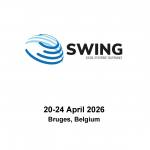Public PhD Defense of Stephanie Arnold, UNU-CRIS PhD Fellow

On Tuesday, 9 July 2024 at 14.00, the public PhD Defense of Stephanie Arnold on The International Politics of Digital Development: A Multi-Method Analysis of ICT Infrastructure and Policies in Africa will take place at the Brussels School of Governance, VUB, Pleinlaan 5, 4th Floor in Brussels (followed by a small reception) and online.

Abstract:
Digital development is sometimes portrayed as a cure to poverty, a catalyst of socio-economic development, and an all-round solution to governance challenges. While intended to reduce the dependency of developing countries, it is striking that digital development is enabled by foreign-made infrastructure and devices, paid for by foreign aid and loans, and regulated by foreign-inspired norms and policies. Will digital development then aggravate or alleviate the global structural inequalities?
This thesis examines the international politics that drive and shape digital development in Sub-Saharan Africa. It adopts Susan Strange’s concept of structural power to situate digital development in the international political economy, where the interests of foreign and domestic actors lie. The empirical chapters zoom in on the role of China and Sino-African cooperation, Afro- European relations, and the implications for the agency of African states. Using both existing and originally collected data, the thesis triangulates the data in a multi-method analysis. A Qualitative Comparative Analysis demonstrates that development aid and loans underpin the Sino-African relations in the digital sector. Multivariate regression analysis shows that developing countries in Africa are more likely to adopt ICT policies compared to other regions of the Global South—a difference that the thesis ascribes to the historical and contemporary ties between African states and Europe. The geospatial analysis of foreign infrastructure providers and inflows of aid and loan presents a novel approach to classify the “degree” of agency of African states. A case study of Rwanda and Tanzania completes the analysis by shedding light on the challenges and opportunities of regional initiatives to enhance African agency.
Overall, the thesis finds that foreign actors engage in digital development abroad to pursue their own national interests. While their efforts contribute to digital development in African states, they also perpetuate Africa’s structural dependency on foreign infrastructure and finance.
Interested in joining this public defense: please click here.
Upcoming Events
Similar Events
No events found.


